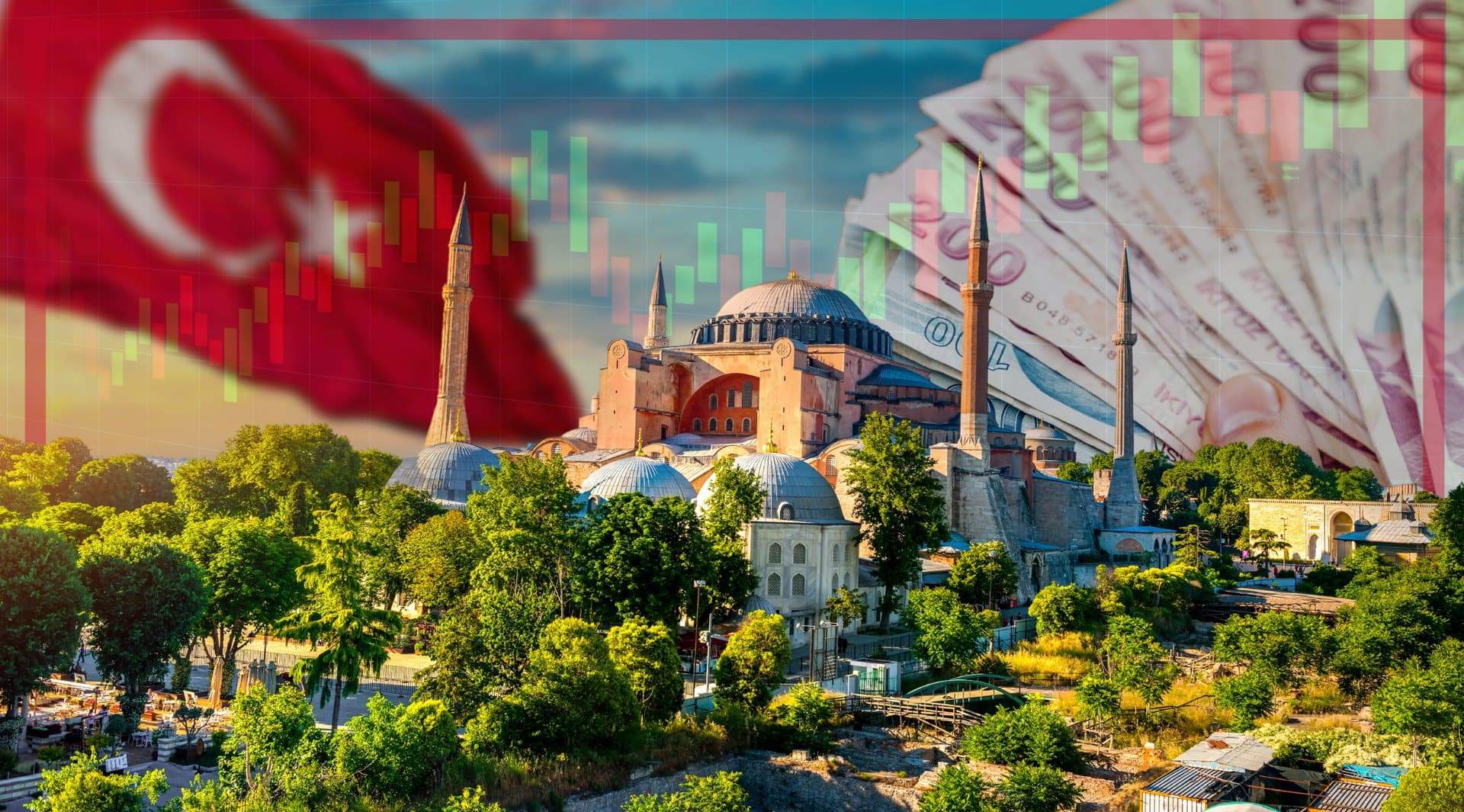Economic growth in Turkey has slowed to its weakest level since the Covid-19 outbreak as high interest rates take its toll on Turkish businesses and individuals.
GDP increased by only 2.5% in the second quarter of 2024, significantly below the market consensus of 3.2%. Private consumption has fallen to its lowest level since the pandemic, with a negligible year-on-year rise of 1.6%. While foreign investors have taken an increasingly bullish stance on Turkey in recent months, this has yet to feed through into the economy, with investment appetite growing by just 0.5% year-on-year.
The months ahead could be challenging for the Turkish economy. Muhammet Mercan, chief economist for Turkey at ING investment bank, has noted that “for the second half of the year, there are signals of additional weakness in domestic demand […] tightening financial conditions, slowing real wage growth, and a likely increase in economic activity in the period ahead.” ING believes that GDP in Turkey will grow by a very modest 2.5% in 2024.
This slowdown – while more pronounced than many expected – is an arguably inevitable result of Turkey’s decision to pursue orthodox monetary policies after years of Erdogan’s unorthodox approach to inflation and interest rates. Erdogan has long believed in ultra-loose monetary policy and has previously sought to cut interest rates in response to higher inflation. This has seen inflation in Turkey peak at around 75% and caused the Turkish lira to drop to record lows against the dollar.
Erdogan changed course after the elections last year and is now pursuing more mainstream economic policies. He has appointed orthodox figures to key economic positions, including at the central bank and at the finance ministry, which is currently headed up by the former Wall Street banker Mehmet Simsek.
Recep Tayyip Erdogan has appointed Mehmet Simsek as his new finance minister, in a sign that the Turkish President may be prepared to pursue more orthodox economic policies. #Turkeyhttps://t.co/utpohWEHE0
— #DisruptionBanking (@DisruptionBank) June 5, 2023
Simsek’s priority has been to bring inflation down and this has meant hiking interest rates substantially. Interest rates are currently at 50%, which has helped inflation cool slightly, to just over 60%. While a crucial tool in the fight against inflation, these high rates have dented GDP growth in Turkey. Higher rates tend to slow growth as they make it more expensive for companies to raise capital and for individuals to borrow, stunting investment and spending.
Timothy Ash, an emerging markets economist, told Disruption Banking that the economic slowdown Turkey is experiencing “is a delayed impact of policy tightening but there is more to come – there is an inevitable “growth-versus-inflation” trade off if they are going to beat inflation.”
He warned that “it will get a lot worse before it gets better.”
Goldman Sach expects Turkey’s inflation to fall to 51.4% from 62% in August.
— Kerim Karakaya (@kerimkarakaya34) September 1, 2024
✔️The central bank will remain cautious and delay easing if inflation doesn't fall as expected.
✔️They also increased USDTRY forecasts: 36, 39 and 44 in 3-, 6- and 12-months (from 33, 35 and 39… pic.twitter.com/yY8GDW8yDg
Daglar Ozkan, an Istanbul-based investment banker, has a similar diagnosis. He told Disruption Banking that the sluggish growth numbers are a result of the pivot to orthodox monetary policy. While he noted that “we had religious holidays in the second quarter, so the 2.5% year-on-year figure reflects the difference in working days too,” on the whole he accepted that “this is very much due to tightening monetary policy as well as caps on credit growth.”
This news comes at a time when optimism is growing in many quarters about Turkey’s mid to long-term growth prospects. Investment banks seem to be going long on the Turkish lira, for example, while exposure to lira-denominated debt amongst hedge funds is also on the rise. The Istanbul Stock Exchange has also seen heightened interest from both local and foreign investors, although there are now signs that high interest rates may be encouraging more individuals to keep their cash in savings rather than stocks and encouraging more businesses to cash their gains.
The latest growth figures are unlikely to leave any major dent in this enthusiasm – however they are a sign of how fraught Turkey’s road back to prosperity will need to be.
Author: Harry Clynch
#Turkey #Banking #InterestRates #Inflation















